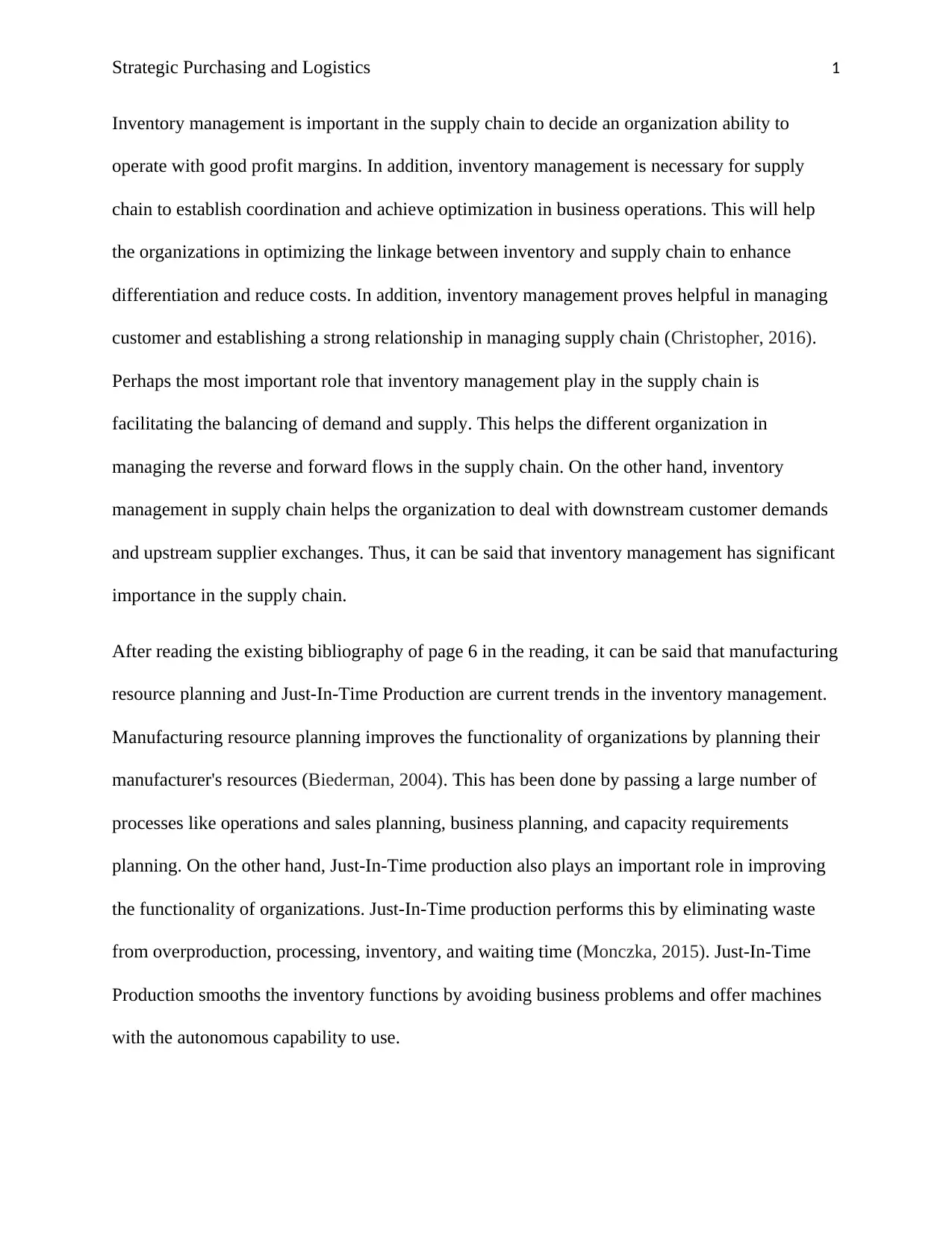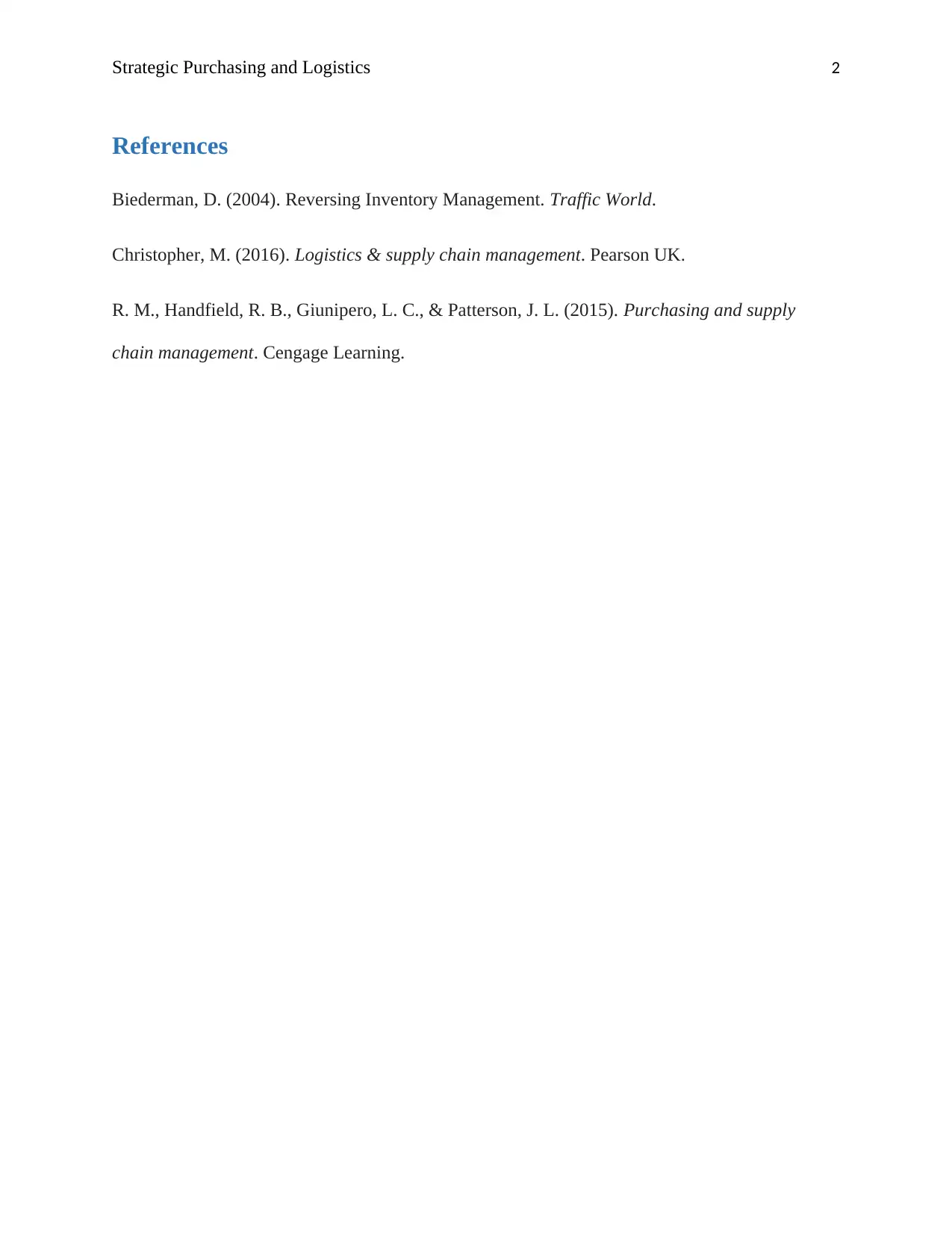Analyzing Inventory Management's Role in Supply Chain Operations
VerifiedAdded on 2019/10/18
|3
|386
|125
Report
AI Summary
This report examines the pivotal role of inventory management within the context of strategic purchasing and logistics in the supply chain. It highlights the importance of inventory management in balancing supply and demand, optimizing business operations, and fostering strong customer relationships. The report discusses current trends, including manufacturing resource planning and Just-In-Time production, emphasizing their contributions to enhancing organizational functionality and efficiency. Manufacturing resource planning is shown to improve functionality by managing various processes, while Just-In-Time production eliminates waste and streamlines inventory functions. This report provides insights into how these elements contribute to effective supply chain management, offering strategies for optimizing inventory and improving overall operational performance. This report is contributed by a student on Desklib, a platform offering AI-based study tools for students.
1 out of 3










![[object Object]](/_next/static/media/star-bottom.7253800d.svg)